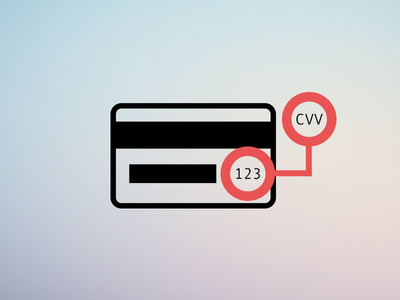
The card verification value enhances security both for the merchants and customers. The CVV are of two types called CVV1 and CVV2 respectively. The CVV1 is printed on the magnetic stripe for track 2 of card. The purpose of the first CVV is to verify the data stored in the card is valid and was given by the bank to the person for use. The CVV2 is printed on the back side of credit and debit cards. CVV2 is the three digit unique code which authenticates that the cardholder is genuine and reduce fraud for the business purpose. The American express card has four-digit code which is on the front side of the card. However the purpose of the CVV is to verify that the customer is the actual cardholder and these is considered an added security for the companies who sells their product online, generally used when card not present transaction take place on E-commerce website.
For merchants
Merchants requiring CVV2 for the card not present transactions can dramatically reduce the fraud cases in the business. Using this extra layer of protection can stop breach or fraudulent cards for going through. Avoid retrievals and charge-back fees.
For customers
CVV2 is prominent for the customers when the buy the online products because you say who you are. Under visa regulations, a merchant cannot store customers CVV database.
Address verification system
Address verification system or AVS, was designed by the card issuer to aid in the detection of suspicious credit card transaction activity, and verify that the cardholder address is same which is registered with the bank on file. This is a part of credit card service which requires the authorization for mail order/ telephone order transactions or internet e-commerce transactions. A code is received with an authorization which results in the level of accuracy. This helps to secure the most interchange rates for the merchants.
Visa, MasterCard, Discover and American Express supports this service and when paired with the CVV confirmation result in a secure transaction. To verify a customer address the merchant require cardholder’s zip code billing and the house or apartment number of the billing address. The merchant not need to enter the street, city or the state of the cardholder. While AVS is not intended for use as absolute protection against suspicious transaction activity, it just helps in authorizing non face to face transactions. Radiant payment gateway solutions recommends to all the merchant that they secure all these type of orders both with CVV and AVS.
